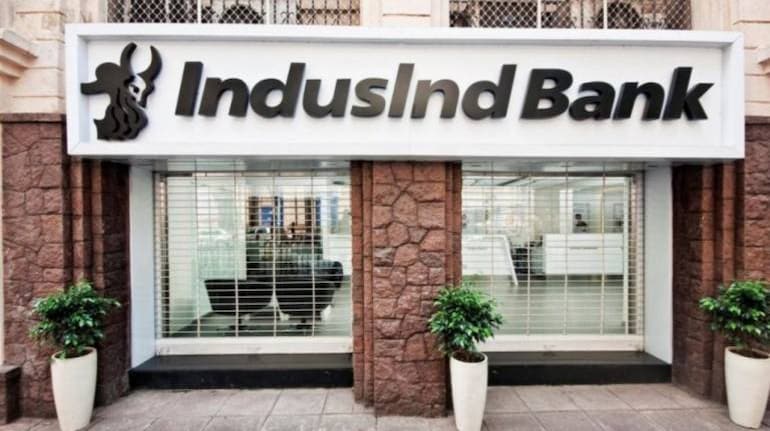
The Yes Bank crisis and a deteriorating economic environment continue to take a toll on the health of private banks such as IndusInd Bank.
On April 3, global rating agency Moody's placed private lender's domestic and foreign currency issuer ratings of Baa3/P-3 under review for downgrade.
"The review for downgrade of IndusInd's ratings reflects the downside risks to asset quality amid the deteriorating macroenvironment and financial market volatility. The bank's loan portfolio includes a relatively higher proportion of micro finance and vehicle finance loans than its peers, which are at high risk of being negatively impacted by the economic shock as customers in these segments tend to have limited buffers to withstand economic stress," the agency said.
Further, IndusInd's funding is weak when compared to other-rated Indian banks, as reflected by its high deposit concentration and low share of retail deposits.
This makes the bank more susceptible to the dislocations in the financial markets, including on wholesale funding sources, Moody’s said.
Yes Bank crisis hangover
The collapse of Yes Bank has created significant risk aversion towards private banks, even for institutions. IndusInd Bank, in a filing to the BSE on March 30 said its deposits have shrunk by 10-11 percent since Q3.
The bank attributed much of this (about 70 percent) to some government- accounts moving money out of the bank and rest by corporate houses.
The hit on the retail book was less, it said.
"This (fall in deposits) will also result in lower CASA ratio, but reduce our dependency on this category for deposits in future," the bank said.
Remember, IndusInd was the first to feel the heat of Yes Bank's collapse as it had to defer a meeting to discuss capital raising.
Also Read | How the Yes Bank crisis has caused a domino effect
Still, analysts do not believe that there is anything fundamentally wrong with these banks except the general industry issues.
"The high-risk aversion that arose after the Yes Bank crisis is playing out. I don't know how long this will stay. But, such deposit erosion doesn’t look good for banks," said Siddharth Purohit, analyst at SMC Global Securities.
According to a research report by Emkay, the erosion in institutional deposits in IndusInd Books was replaced by certificate of deposits and borrowings and eventually will be replaced with retail deposits.
These banks will also see stress in asset quality on account of COVID-19-induced lockdown, especially in microfinance, real estate, vehicle finance segments, the report said.
Surprisingly, government-related accounts are in a panic mode even after Reserve Bank of India's appeal to state governments, asking them not to withdraw money from private banks.
"We strongly believe that such a move can have banking and financial sector implications. We would like to point out that the Reserve Bank had adequate powers to regulate and supervise the private sector banks and by using these powers it has assured that the depositors’ money is entirely safe," a report in The Economic Times said.
IndusInd has a Rs 21,000 crore MFI book, which is about 10 percent of the total lending book and nearly a similar chunk of real estate loans. The recovery in these accounts will depend on the economic recovery after the COVID-19 panic settles down
"We believe that the bank's near-term performance will track its ability to manage COVID-19-led disruption on its growth/asset quality,”Emkay said.
In Q3 FY20, IndusInd reported NPAs to the tune of Rs 4,578 crore, which, in percentage terms, is nearly flat on a sequential basis.
Adding the restructured loans part, the gross NPAs come to around 2.27 percent. The bank has a capital adequacy ratio of 15.43 percent. Out of its total loan book of Rs 2,0,7413 crore, only about 46 percent comprises corporate loans. A closer look at the corporate portfolio shows a diversified book with significant exposure to large corporations (25 percent).
Not just IndusInd, even RBL Bank too has seen about 8 percent erosion in its deposit book.
In RBL Bank's case too, asset quality worries persist on account of present economic environment.
In an interview to CNBC-TV 18, RBL Bank's Chief Executive Officer Vishwavir Ahuja had said recovery in portfolios such as SME will depend on the impact of COVID-19 outbreak on the cash flows of companies.
Until Yes Bank's collapse, new-age private banks were seen as preferred entities for several institutions, including government entities, due to competitive interest rates and tech-enabled customer services. This image has taken a beating after the Yes Bank episode.
Also Read | What the Yes Bank rescue plan actually means
"Prior to Yes Bank, there was a chase for higher interest rates. Everyone moved the money if there is half a percentage point higher rate in a bank. That is past. Now, people are looking are looking for safety, rather than returns," said a PSU banker on condition of anonymity.
So, what lies ahead for private banks?
"It is difficult to say at this stage how long the problems will persist. These banks will have to work out a way to restore customer trust and thus prevent further outflow of deposits," said Purohit.
Discover the latest business news, Sensex, and Nifty updates. Obtain Personal Finance insights, tax queries, and expert opinions on Moneycontrol or download the Moneycontrol App to stay updated!